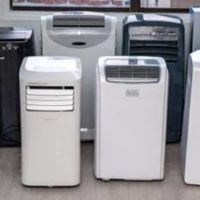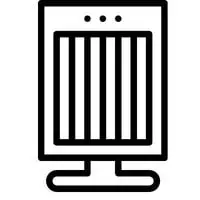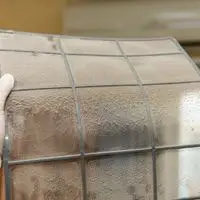Portable ac keeps tripping breaker. In hot summers, it is very difficult to survive in high temperatures. Air conditioners are the best option to cool the temperature in the room and at home.
It is an electrical appliance that is installed on the walls of the room, so its proper maintenance is very important. If its air filter gets a layer of dust on it, then it will not be able to work, and it will start tripping the breaker.
Another reason for tripping the breaker of ac is that it is bringing more amp from the breaker; if you have a circuit breaker of 25 amp and your ac is pulling 35 amp, then your breaker will automatically be tripped off.
Portable ac keeps tripping breaker
You can get easy sleep under the Ac because it cools the hot temperature and makes the environment very pleasant to sit in or sleep in, but the bad thing about Ac is that it produces a high load on the power due to the high consumption of electricity and it starts tripping breaker also.
There are many factors due to which breaker of ac can be kept tripping.
Not enough current
Sometimes ac gets tripped due to not enough current in the circuit breaker of the ac, ac is a power electrical appliance, and it gets more load.
If the circuit breaker does not provide its required load, then ac will trip.
An ac needs a heavy load of current to work, and if your circuit breaker is producing less amp, then. As a result, the ac keeps tripping the breaker.
You can avoid this problem by installing an equal amp breaker of the circuit to ac.
Dirty air filter
If you do not clean the filter of your ac, then a layer of dust will come on the filter, which will either produce hot heat and also it will be tripping regularly.
A dirty filter minimizes the flow of air and ac gets heat u due to no passage of airflow.
It will also affect the cooling temperature of ac, and you will not get the required cooling that you want.
It is better to clean the air filters of the ac after months, depending on its usage.
Failure of compressor
The compressor is the most important part of an ac; it takes a lot of electricity when it starts up. Sometimes it does not get the required electricity which results in tripping the breaker.
To avoid this problem, you will need to install a hard start kit which will provide extra electricity to start the ac.
Broken coil fan
If the circuit breaker of ac is tripping, then this problem is maybe due to ac fan motor. The reason behind that is not enough electrical power due to a broken coil fan.
If there are some damaged parts in ac, then it will definitely get more electricity. HVAC pro is required to solve these problems of ac.
Grounded compressor
A grounded compressor means inside the compressor, there is breakage of electrical winding, and it is touching the side of the compressor.
There will be a short circuit in the ground due to this. It is a very bad problem to have, and you will have to change the compressor of the air conditioner.
Short in motor of ac
The motor of your ac can run for a long time in hours, but it will get hot, and the insulation of the wire will break, which results in an electrical short.
As a result circuit breaker will trip off. You will have to call a professional HVAC to fix this problem.
FAQs
What happened when your AC system is frozen?
This problem occurs when the room of your home has increased in temperature, the filter of AC is moist, ice is covering the evaporator coil, and your ac is kept drawing power up to tripping of breaker.
What could be the reason behind the switching off of the AC compressor?
It is due to the overheating of the AC. The compressor of the AC should be cleaned completely with a cloth immediately.
Conclusion
AC is a complicated electrical appliance; You can not fix its problems on your own. You will have to hire a professional HVAC to solve the problems if your ac is kept tripping.
It is better to clean the air filters regularly if you want to minimize this problem.
Related Guides


